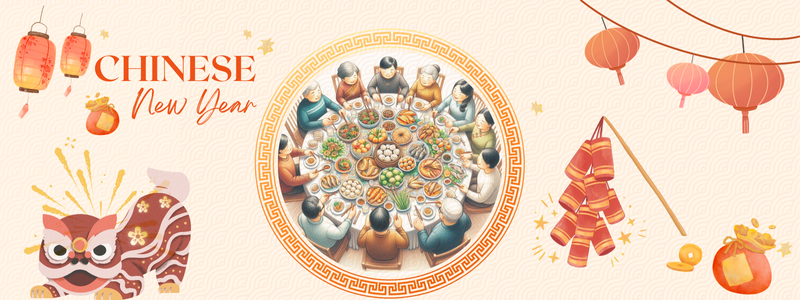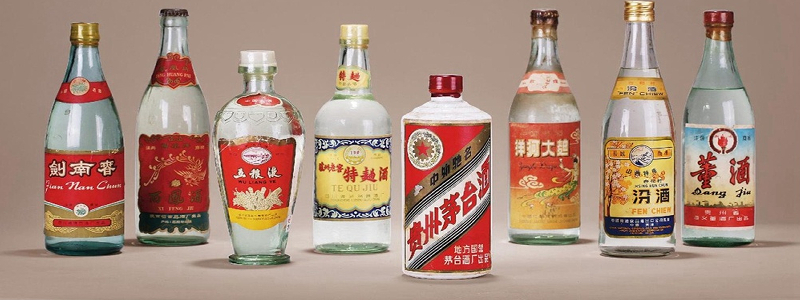In Chinese, there are 3 common ways to express “want”: 要 yào, 想要 xiǎngyào, and 想 xiǎng. While they can all be translated as “want” or “would like,” the differences lie in how strong the desire is, how certain the speaker is, and who typically uses it. 要 yào — Strongest, most certain 我wǒ要yào學xué中文zhōngwén我wǒ要yào学xué中文zhōngwénI want to study Chinese.(This shows a firm decision. The speaker has likely…
Category: HSK 2
Chinese New Year
過过年 guònián (Chinese New Year) is the most important traditional festival in China, celebrated by Chinese communities worldwide. The festival lasts for 5-9 days, depending on which day of the week it starts. People celebrate by reuniting with family, having big feasts, giving red envelopes (紅红包 hóngbāo), and setting off firecrackers. Each year is associated with one of the 12 Chinese…
Imperatives “to do more” – 一点 yìdiǎn
Grammar Point:In Chinese, 一點点 yìdiǎn is often used in imperatives to soften the tone of a command, making it sound more polite, less direct, or more reasonable. Structure V + Adj + 一點点 yìdiǎn Usually, when a verb is followed by an adjective in Chinese, “得 de” is used to indicate the degree of the action. However,…
Chinese Recipe – Cold Cucumber
涼拌小黃黄瓜 liángbàn xiǎohuángguā Cold cucumber is a light and refreshing Taiwanese side dish that’s perfect for hot summer days. Made with crunchy cucumbers, sugar, salt, vinegar, garlic, and a hint of chili, it strikes the perfect balance of tangy, savory, and slightly spicy flavors. The cucumbers are lightly smashed to soak up the marinade, and…
Giving Directions – cóng…wǎng…
Grammar Point:The Chinese grammar pattern 從从 cóng…往 wǎng… is used to describe movement or direction. It is commonly used to explain the starting point and the direction of an action, especially in describing physical movement. Structure 從从 cóng + starting point + 往 wǎng + direction + V 從cóng學校xuéxiào往wǎng東dōng走zǒu, 你nǐ會huì看到kàndào一個yíge公園gōngyuán从cóng学校xuéxiào往wǎng东dōng走zǒu, 你nǐ会huì看到kàndào一个yíge公园gōngyuánFrom the school, walk east, and you…
Ongoing Actions with zhe
Grammar Point:The particle 著着 zhe is used to indicate ongoing actions or a continuous state in Mandarin Chinese. While it’s common in narratives or storytelling, it’s not something you’ll hear often in everyday conversations. In daily life, people usually use 在 zài to talk about actions in progress. When do we use it? How would you describe these 2…
Two actions in the same time – 一邊 yìbiān…一邊 yìbiān…
Grammar Point:The term 一邊一边 yìbiān…一邊一边 yìbiān… is used to express the idea of doing one thing while doing another thing simultaneously, with both actions being intentional. It emphasizes that the two actions are happening at the same time and are equally important. If you want to express that something happened while another thing was happening,…
Showing Distance With 離 lí
Grammar Point:離离 lí is a Chinese preposition that can be used to indicate distance, separation, or departure. It is often translated as “away from,” “off,” or “from” in English. Structures A 離/离 lí B + 近 jìn or 遠/远 yuǎn 日本Rìběn離lí韓國Hánguó非常fēicháng近jìn日本Rìběn离lí韩国Hánguó非常fēicháng近jìnJapan is very close to Korea. 加拿大Jiānádà離lí墨西哥Mòxīgē不bú太tài遠yuǎn加拿大Jiānádà离lí墨西哥Mòxīgē不bú太tài远yuǎnCanada is not too far from Mexico. 我wǒ公司gōngsī離lí車站chēzhàn很hěn近jìn我wǒ公司gōngsī离lí车站chēzhàn很hěn近jìnMy company is very close…
Western Breakfast in Chinese
Ever found yourself craving pancakes or eggs Benedict in China but didn’t know how to ask for it? This quick guide will teach you the essential phrases to order your favorite Western breakfast in Chinese! 蛋類蛋类 Egg Dishes 太陽蛋tàiyángdàn太阳蛋tàiyángdàn – Sunny-side up eggs 荷包蛋hébāodàn煎鸡蛋jiānjīdàn – Fried eggs 炒蛋chǎodàn炒蛋chǎodàn – Scrambled eggs 水波蛋shuǐbōdàn水波蛋shuǐbōdàn – Poached eggs…
Drinking Culture in Chinese
Beyond “Cheers!” – Your Guide to Drinking Culture in Chinese Ever wondered how to talk about alcohol in Chinese? Whether you’re planning a business dinner in Shanghai or a night out in Taipei, understanding drinking culture in Chinese-speaking regions can be your secret weapon for better connections and memorable experiences. Alcohol Vocabulary If you’re curious…








